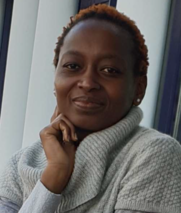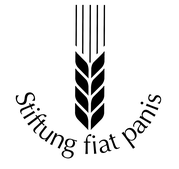The Bio-Geosphere Africa 2023: Research for Diversity and Sustainable Development in the Face of Climate Change Conference (BioGARD) took place on the 14th and 15th of September 2023 at the University of Hohenheim in Stuttgart, Germany and offered stimulating lectures, original research, practical examples and lively discussions on future directions for an integrative and sustainable development in Africa. On the background of the African Union Agenda 2063 " a Prosperous Africa, based on Inclusive Growth and Sustainable Development" the adaptive capacity of social, health, ecological and agro-systems for tackling the challenges imposed by the ongoing climate change were examined.
The sessions were built around the three major realms of sustainable development – biodiversity, agriculture, and resource use and health – by addressing the following topic areas:
- Bio- and geodiversity of Africa: Current status and challenges in the face of environmental change
- Resilient agriculture and resource use in an increasingly unpredictable future
- Resilient Health and Human Wellbeing under novel climatic and ecological settings
Three plenary sessions, parallel oral presentation sessions, and poster sessions add to a diverse congress program. The two days program was completed by workshops addressing pressing research needs and funding opportunities, capacity building as well as guidance on legal protocols for African-European research.
14th September:
Keynote Speech_Resilient Agriculture:
Resilient Agriculture: For Whom? By whom?,Veronica Mwangi Resilient Agriculture:Panel 1: (Moderated by Sarah Loftus) |
| Sorghum rhizosphere traits and the phosphorus exploitation strategies in an African iron-rich Acrisol, Sara Loftus |
| Farmers’ preferences for adopting agroforestry in the Eastern Drylands of Rwanda, Jean Bosco Nkurikiye |
High-quality and affordable fish feeds to support the resilience of Beninese fish farmers in a climate change context, Polycarpe Kayodé |
Microbial Remediation Of Overexploited Soils In Malawi, Sarah Fröbel Panel 2: (Moderated by Thomas Daum) |
| Below ground exploration of sorghum genotypes to overcome nitrogen limitation in nutrient-deficient tropical soils under drought, Rosephia Munen |
| Enhancing cropping system resilience to climate variability in Africa throug grain legume integration: A meta-analysis, Adam Muhammad Adam |
This compilation comprises contributions from 53 authors, encompassing 42 oral presentations and 11 poster presentations, addressing the following subthemes:
• Bio- and geodiversity of Africa: Current status and challenges in the face of environmental change
• Resilient agriculture and resource use in an increasingly unpredictable future
• Resilient Health
You can access and download the Book of Abstracts here
We were very pleased to present three high-level keynotes at our conference. The keynotes kicked off the three topics in our plenary session with their distinctive expertise. In the following, you will find a introduction of the speakers.
 |
Veronica Mwangi
Veronica Mwangi is a lecturer in Economic Geography at the Department of Geography, Population and Environmental Studies, University of Nairobi. She is also a researcher at the Centre for Training and Integrated Research in ASAL Development (CETRAD), Nanyuki and the African Cities Research Consortium (ACRC). Veronica has broad research interests in rural and urban food systems, food security, poverty and livelihoods in sub-Saharan Africa. She is the chairperson, KAAD Association of Scholars of East Africa (KASEA) and a member of the International Association for the Study of the Commons (IASC); and the Young African Researchers in Agriculture Network (YARA).
|
 | Prof. Dr. Marc Mendelson Marc Mendelson is Professor of Infectious Diseases and Head of the Division of Infectious Diseases & HIV Medicine at Groote Schuur Hospital, University of Cape Town. He undertook his PhD and Infectious Diseases training in Cambridge before moving to The Rockefeller University in New York and then to UCT in 2001 for postdoctoral work. He is Chair of the Ministerial Advisory Committee on Antimicrobial Resistance (AMR) and co-founder of the South African Antibiotic Stewardship Programme. His focus is on national and international policy development to mitigate AMR and is a jobbing infectious diseases physician and antimicrobial steward. Marc works as a technical advisor to several international organizations including the WHO, GARDP, GHSA, and the Vivli AMR Register. He has held the presidencies of the Federation of Infectious Diseases Societies of Southern Africa and the International Society for Infectious Diseases and is a Fellow of the Royal Society of South Africa.
|
 | Prof. Dr. Guy Midgley Guy Midgley is a Distinguished Professor, and Acting Director of the School for Climate Studies and Center for Invasive Biology at Stellenbosch University, South Africa. With strong interests in global change biology, biogeography and plant ecology, he is amongst global leading experts in the fields of biodiversity and global change science, cutting across the science/policy continuum under the UNFCCC and the CBD and focusing on social-ecological impacts and adaptative strategies. He is listed by Thomson Reuters as amongst the most influential 200 climate change scientists globally. He has served as coordinating lead author on the 4th, 5th and 6th IPCC assessment report, and Global Assessment Reports of the Intergovernmental Platform for Biodiversity and Ecosystem Services (IPBES). He chaired South Africa’s Global Change Science Committee for more than 10 years. Recently he was recognized by the South African Royal Society Marloth Medal for contributions to science and policy and by the Alexander von Humboldt Foundation award for lifetime contributions to science. |



